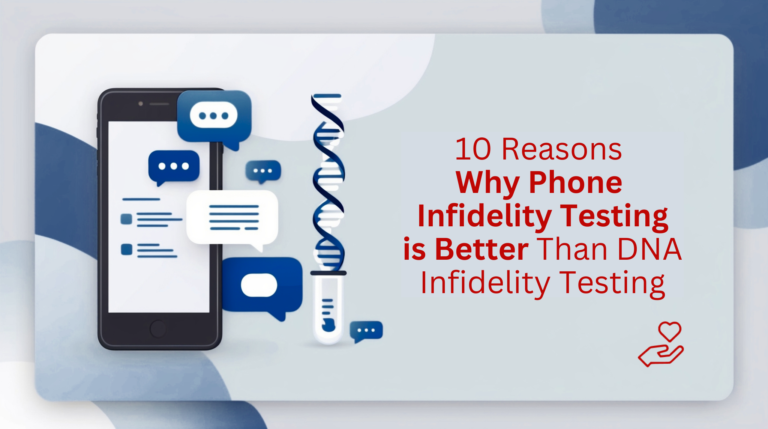Infidelity—whether you discover it on your own or through a phone infidelity test—can be one of the most heartbreaking experiences in any relationship. It shakes the very foundation of trust and security, leaving you reeling with a whirlwind of conflicting emotions. The emotional impact can feel overwhelming, but amid the chaos, there is hope for healing and growth. In this blog, we’ll explore practical strategies for coping with the emotional pain of infidelity, offering guidance to help you move forward and start your journey towards healing.
Understanding Your Emotions
Discovering infidelity can trigger a flood of intense emotions—shock, disbelief, anger, sadness, and a profound sense of betrayal. These feelings can consume you, making it hard to make sense of what happened or figure out how to move on. It’s crucial to acknowledge and validate these emotions. Suppressing your feelings will only prolong the healing process, so give yourself permission to experience them fully.
Allow Yourself to Feel Without Judgment
The rollercoaster of emotions that follows infidelity is completely natural. Trying to suppress your feelings will only make the pain linger. Instead, allow yourself to truly feel your emotions without judging them. Whether you’re experiencing sadness, anger, or even confusion, all of these feelings are valid. Healthy outlets are key—talk to a trusted friend, seek therapy, write in a journal, or get active. Cry if you need to, scream if it helps, or simply sit with your emotions without trying to make sense of them right away.
Practice Self-Compassion
Infidelity can leave you questioning your own worth, making you feel unworthy or unlovable. Combat these negative thoughts with self-compassion and self-care. Remember that your partner’s actions do not define your value. Treat yourself with kindness—engage in hobbies you love, spend time with friends who lift you up, and don’t hesitate to seek professional help if you need it. Prioritizing your well-being is key to rebuilding your self-esteem and moving forward.
Set Healthy Boundaries
After discovering infidelity, setting boundaries is crucial to protect your emotional well-being. This could mean taking a temporary break from the relationship to sort out your feelings or establishing limits on how much you communicate with your partner. Boundaries are essential for creating a safe space where you can focus on your own needs, whether or not you decide to continue the relationship. This step helps you regain a sense of control during a time that often feels very chaotic.
Seek Support from Others
Dealing with infidelity can feel incredibly isolating, but it’s important to remember that you don’t have to go through it alone. Reach out to trusted friends, family, or a therapist who can support and guide you through this difficult time. Connecting with a support group for people who have experienced infidelity can also be empowering. It reminds you that you’re not alone, offering a sense of validation and solidarity with others who understand exactly what you’re going through.
Forgiveness—For Yourself, Not Just for Your Partner
Forgiveness is a deeply personal journey, and it doesn’t always mean reconciling with the person who hurt you. Instead, forgiveness is about letting go of anger and resentment, freeing yourself from the burden of these emotions. This can be incredibly powerful for your own healing. Remember, forgiveness doesn’t excuse or condone infidelity, but it allows you to reclaim your peace and move forward with your life.
Focus on Your Own Healing
Healing from the emotional impact of infidelity is a gradual process. Take this time to explore your own needs, values, and desires independently of the relationship. Dive into activities that bring you joy—take up a new hobby, travel, or focus on your personal growth. The goal is to rebuild your sense of self and create a life that is meaningful and fulfilling, no matter what the future holds for your relationship.
Embrace the Journey of Healing
Coping with the emotional aftermath of infidelity is challenging, but it also presents an opportunity for personal growth and transformation. By allowing yourself to feel, practicing self-compassion, setting boundaries, seeking support, and focusing on your healing, you can start to navigate through the storm of emotions towards a brighter, more hopeful future. Remember, healing is not a race—it’s okay to take it one day at a time. You are stronger than you realize, and there is light at the end of the tunnel.
For more guidance and resources on overcoming infidelity, or if you suspect your partner might be cheating, consider using a phone infidelity test to help uncover the truth and begin your healing journey.




